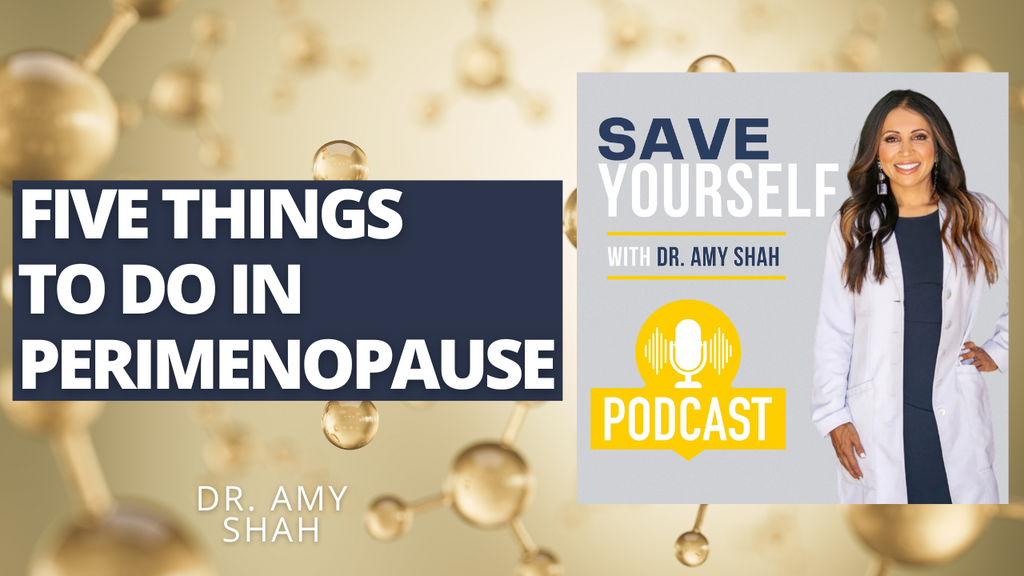One of the biggest reasons women gain weight during perimenopause is because they aren't moving as much. So when they looked at studies about why women are gaining weight, yes, of course, it has to do with the changing hormonal levels. But they also found that women tend to walk less during these years. They just tend to move less. Whether it's responsibilities, whether it's your brain being more tired because you're not sleeping as well, whatever it may be, people are just less active than they used to be. And so asking them to do more walking, getting 10,000 steps or more is a great way to improve your mental health, your physical health, and prevent yourself from gaining those menopausal pounds. Being outdoors is the best way to walk because you get the nature benefits. I'm always telling everyone to get sunlight in the morning.
And doing your walk while getting sunlight is the optimal way to do walking. In fact, I tell people to do three f morning. So one is being fasted twelve to 14 hours. Second is fitness. So morning fitness outdoors is ideal. And then the third is food. Like I mentioned to you, the fiber fermented, high protein food. So get your steps.
If you can't get steps, do it some other way. Swimming, biking, dancing, whatever it is. But low stress movement is one of the best ways that you can improve your symptoms and feel great during perimenopause. Step number four, improve your circadian rhythms. Remember, sun sleep. Circadian rhythms matter. Getting sunlight in the morning, the morning is the best time to get it. But really getting light, any time of day, is really helpful in resetting your circadian rhythms and sleep.
Adequate sleep and sleeping at the same time every night. You will be shocked at how much your mood and energy levels improve when you improve your circadian rhythms. During perimenopause. A lot of people have a lot of sleep disturbances, and they're not really sure how to boost their energy levels. So I think it's more important than ever to really time yourself with circadian rhythms. The science behind circadian biology is just fascinating. In fact, the Nobel Prize in Medicine a few years ago went to the scientists that uncovered how circadian rhythms really run about 80% of our genes. So almost everything runs on a circadian rhythm.
So everything, your brain, everything, your hormones, your gi tract, your muscles. So you really want to be minding your circadian rhythms. That means getting at least 20 to 30 minutes of natural light every day. It doesn't have to be sunny, it can just be cloudy, overcast, but getting that natural light and getting sleep every night. Darkness in the night. So that means really trying to improve your sleep hygiene. We can do a whole episode on sleep hygiene, honestly, but you really want it to be dark. Minimize those blue lights, minimize the bright overhead white light activity in the evening, and getting adequate sleep, seven to 9 hours every single night.
Having about 550 milligrams in your diet is really essential for the best brain health and the best bodily function. I mean, we need magnesium for brain health. It lowers our stress hormones, it relaxes us muscles. And hormonally it is so essential in perimenopause if you're taking a supplement. Magnesium glycinate is a great supplement to take during perimenopause. And you want to get a total of 550 with your food and supplements together. There's so many other things in perimenopause. The other thing of course is probiotic foods because we talked about the importance of gut health.
Spices like cinnamon, pepper, turmeric, ginger, all these spices are prebiotics. So really great for your gut health. And they also have polyphenols, just like tea and coffee and chocolate do as well. And these are also really great things to add to your diet. And I think that pretty much covers the nutrition during perimenopause, at least some of the essentials of nutrition. So I hope you found this helpful. The five steps to a better perimenopause. Not only am I kind of an expert in nutrition, I'm a medical doctor, but I'm also in that stage with you.
So I get it. It's not easy. And most society thinks of it as kind of like you're starting to become irrelevant in media, in movies and social media. Now there's a huge movement because I think women realize that there's so much more that they have left in them after menopause. And so there's this huge movement to really live optimally during this time so that you can do the things you've always wanted to do. You can be the person you always wanted to be. And when I coach people, I always tell them that this could be the best years of your life. Literally.
A lot of people feel this way. So thank you so much for listening, and stay tuned for another episode.

